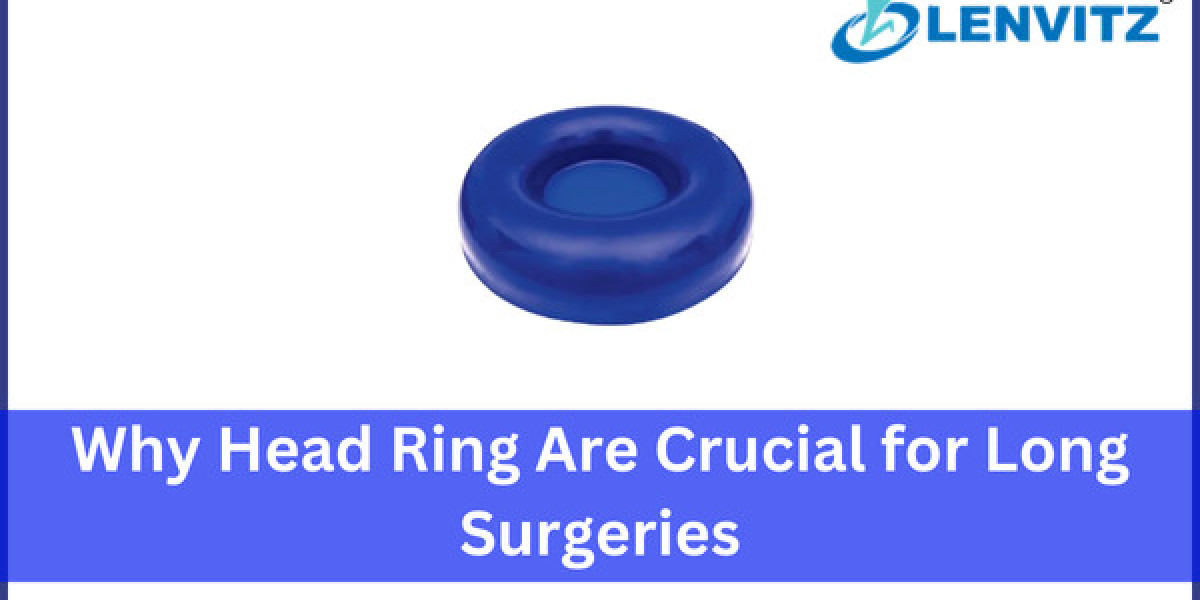The positioning of patients during surgeries especially those that take several hours is of paramount importance in determination of comfort of the patient and prevention of complications. Another element, a head ring which is a kind of positioning support, is becoming more popular as it is required for many operations. Head rings are primarily useful in supporting and positioning the patient’s head and neck to minimize pressure on the cervical spine, as far as possible. Head rings have a docking function when used with other items such as prone head rests and lateral position gel pads, they offer an extra layer of support and protection in current surgical environments.
The Role of Head Ring in Patient Stability
Head ring is an immobilizer which is a cushion, silicon gel or memory foam that supports a patient’s head during surgery. This stabilization is important especially during lengthy procedures when even slight movements can make a lot of difference regarding alignment issues. A head ring effectively saves the head of a patient from any movements, which can lead to pressure injuries of the spine and neck or nerve and muscle traumatisation. For example, in operations where the patient should stay in the prone position, prone head rests together with head rings contribute to stabilization of the head and minimize pressure on the neck and shoulders.
Reducing Pressure and Preventing Injuries
Prolonged surgeries are associated with a number of complications that include pressure sores and nerve damage. These risks are greatly minimized through head rings, devices designed to evenly distribute the weight applied at the head. They complement lateral position gel pads as a total positioning strategy since head rings help prevent pressure concentrated on any specific area. This is helpful in avoiding pressure ulcers found at areas like the ears, temples, occipital region of the head because of lying down for lengthy duration on such parts.
Enhancing Surgeon Precision
Patient positioning is the key factor to precise surgery. Especially during protracted surgeries, the least movements of the patient may interfere with the precise movements of the surgeon. With the head ring correctly positioned, the need for position change during the surgery is reduced – making it more stable for the surgical team. With fewer possibilities for slippage, head rings can help the surgeon keep their attention on the surgery and thus can be highly useful in cerebral instances or surgery on the face where any misalignment is likely to cause more problems.
Supporting Different Surgical Positions
This is because during the surgical operation the patients may have to be positioned in different alignments such as prone (face down) or lateral (side lying) positions. All of these positions are stressful to the body, especially the head and neck parts of the body. It has a prone head rest in combination with a head ring, so that when lying face forward on the table the spine remains in its usual position and the neck and face receive sufficient support. In the same way that head ring lateral position gel pads support the head and assists in the positioning and stabilization of other parts of the body should the patient be lying on their side. Combined, these instruments foster an environment of safety and stability that means that the load is never placed on one area for too long to the detriment of the patient who needs to remain in position during lengthy surgeries.
Conclusion
Head rings are not only relevant to the comfort of the patient but also, the surgeon has to rely on head rings in order to avoid injuries during the surgical process, precise movement, and correct position. When used in conjunction with other positioning aids including prone head rests, and lateral position gel pads, head rings provide a critical element to surgical positioning while minimizing the risks associated with long surgical procedures. Both head rings and accessories should be of the best quality as a way of achieving the best results with the patients and increasing the safety of long surgeries.
